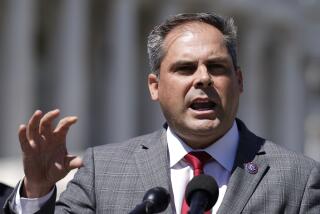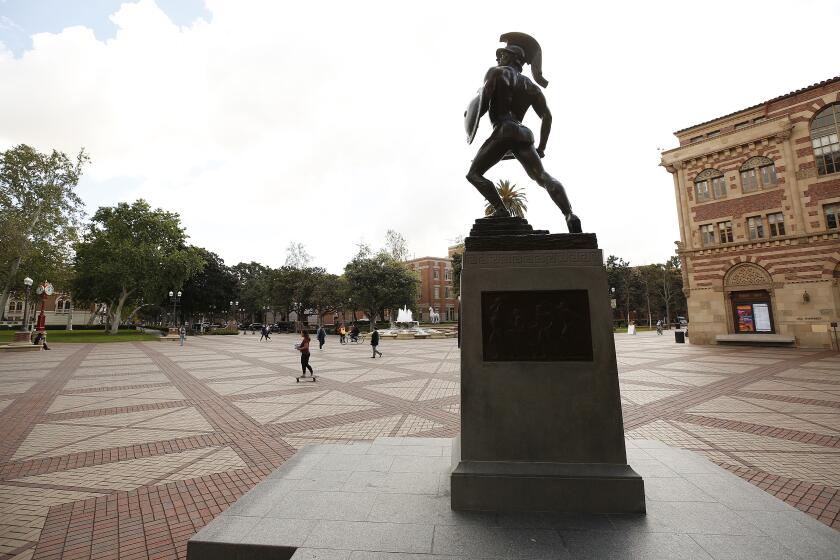Deficit-deluded tea party Republicans love the sequester scheme
The delusions of tea party Republicans are about to create a lot of misery for America. The “sequester” -- the drastic set of budget cuts formerly known as the “fiscal cliff” -- seems very likely to go into effect at the end of this week due in no small part to the fact that hyper-conservative lawmakers, such as Kentucky Sen. Rand Paul, actually think it’s a pretty swell idea.
Their obsessive and mistaken belief that the federal deficit is the greatest threat to the republic is leading them to block any compromise with Democrats that would delay or repeal the looming budget reductions.
They want government to get smaller and smaller, even if the cuts will come too quickly and slash too indiscriminately. The supreme absurdity of their position is that this could so damage the American economy that federal revenue will drop and deficit reduction will become even harder to achieve.
The tea party folks may be sincere, loyal citizens, but their notions about how the economy works are exactly that: mere notions. Their core notion is that government needs to do nothing more than get out of the way of business in order for the economy to boom and bloom.
In an 18th century world or in the fiction of Ayn Rand that might have worked, but the reality is different. The United States became the world’s biggest economy in the post-World War II years for many reasons, but one big reason is that government played a pivotal role.
Government built infrastructure like the interstate highway system, paid for crucial research and development, ran the space program, supported a massive military and played referee in the financial realm so that those who wanted to rig the system could not do it as easily as they had in the 1920s.
When, in his first inaugural address, Ronald Reagan famously said government is the problem, not the solution, he established the Republican mantra that has not changed in all the years since. It was a clever bit of rhetoric, but it has turned too many Republicans into economic simpletons. Government can, indeed, be part of the problem sometimes, but it cannot be left out of any solution to the challenges of our complex modern economy.
Pete Peterson, President Nixon’s secretary of Commerce, has campaigned for years against rising deficits and has earned the ire of liberals who think his insistence on restructuring Social Security and Medicare is too extreme and unnecessary. Yet, even Peterson, in an interview on public radio’s “Marketplace” on Tuesday, said many of his fellow Republicans are crazy to think the sequester cuts are a smart idea.
Peterson said the deficit problem is long-term and must be dealt with comprehensively through spending reductions, entitlement reforms and revenue increases, a.k.a. taxes.
What should not happen, Peterson insisted, is a governmental retreat from investing in America’s economic future through funding of things such as education, infrastructure and basic scientific research. Of course, to the tea party Republicans, such talk is heresy.
There is one other fallacy that anti-government conservatives cling to, and they talk about it so much that they have convinced most of the people in the country it is true. That fallacious premise is that President Obama has done nothing to reduce the federal deficit. In fact, the deficit has shrunk as a percentage of GDP every year since Obama took office. Check the numbers. Look it up. We are actually on the right track!
But that will not last long if hundreds of thousands of government workers are furloughed, if military bases are closed, if the air traffic control system is disrupted or if many other important government services are crippled. That will start happening on Friday when the sequester kicks in. If it does, we will have a bunch of deluded deficit hawks to thank for it.
More to Read
A cure for the common opinion
Get thought-provoking perspectives with our weekly newsletter.
You may occasionally receive promotional content from the Los Angeles Times.











